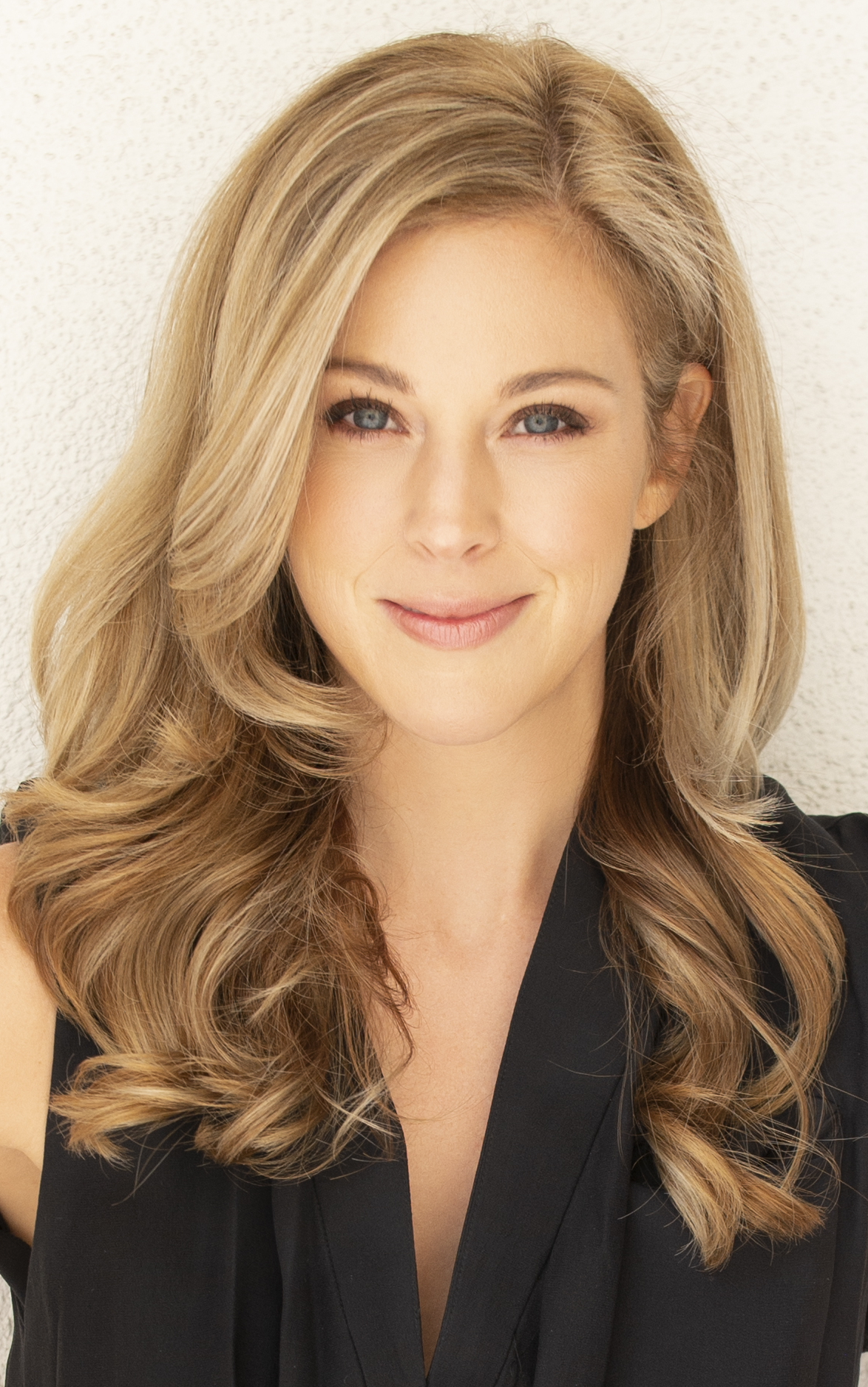
When Ara Katz became pregnant, she started thinking about bacteria. Specifically, good bacteria as a solution to breastfeeding complications – and soon, it became the foundation of her business.
In 2015, Ara co-founded the adult and pediatric probiotic company, Seed, (she’s also the co-CEO) to help heal, restore and nourish microbiomes, the teeming systems of bacteria and fungi within our bodies. She focused on revitalizing the microbiome through science-backed solutions (in her case, probiotics), which can help radically improve physical and mental health
Ara wanted to ensure that her work considered the bigger picture: restoring ecosystems, whether those as microscopic as the ones inside our bodies or as massive as our planet, which led her to also co-found Seed Health. She doesn’t just implement sustainable business practices — she dedicates resources and research to global applications of probiotics to fight environmental damage. To prevent further harm to the planet, she uses a sustainable refill system with biodegradable and reusable packaging.
The microbiome is a study of connection, as is Ara’s story. She has shaped a career around how we merge our individual passions, challenges and health journeys with a bigger mission. How we bolster our individual wellbeing while ensuring others, and nature, can do the same. I spoke with Ara about how to build a business that nourishes both individuals and the planet, how our microbiome impacts our mental health, and what we can all do to care for the world inside of us.
Probiotic foods and supplements are all the rage right now, but can you start by breaking down the basics for us? What is your microbiome and why is it important to your overall health?
You are home to a community of microorganisms, including 38,000,000,000,000 bacteria, fungi, protozoa and viruses that live in and on you—this is your microbiome. The bacteria alone represent approximately 50% of you by cell count—an invisible, but powerful half. Without microbes, our human body can’t digest food, break down complex carbohydrates or produce critical micronutrients.
Like a bustling metropolis, the body is home to distinct neighborhoods and communities, all connected by a network of highways, roads and subways that enable communication across the entire system. There’s almost no function in the human body that microbes aren’t involved in, and the gastrointestinal system sits at the core of it all.
Given how critical the microbiome is to our health, learning what it is, what it does, and how best to nurture it, is fundamental. I wrote A Kids Book About Your Microbiome, a story about the community of microbes (too small to see!) living in, on, and all around us—for kids and adults to better understand this invisible world.
What led you to start Seed?
Though not a scientist, I’ve had a lifelong fascination with biology, health and how we care for our bodies. After a miscarriage and a tough decision to leave a tech company I had co-founded, I got pregnant again. My miscarriage and new pregnancy reignited my fascination around the tension between science and the advice and products we’re exposed to both in the critical moments of our health and in our everyday lives.
During that same time, the microbiome had come onto my radar, and I was introduced to my co-founder, Raja. We immediately bonded over two truths: first, that there was an opportunity to apply the scientific rigor of life science and biotech to a consumer health company in the context of so much “wellness” noise. Second, that the emerging field of microbiome research (and how microbes could be harnessed) would redefine health.
Then I had my first son, Pax. After four months of breastfeeding, I was having trouble with my breast milk supply and the search for alternative options catalyzed the inception of Seed.
We’ve since assembled leading scientists across the various domains of microbiome and have built a platform that translates breakthrough science into some of the most rigorously tested and studied microbial interventions across both consumer probiotics and therapeutics. Our pipeline today spans gastrointestinal and digestive health, women’s health, skin and oral care, pediatrics, mental health, metabolic function, and nutrition.
Studies have recently correlated gut health to everything from your quality of sleep to your immunity. What are the most important ways our health and life benefit from improving our gut health?
Your gut microbiome can impact nearly every aspect of your health:
- Healthy Digestion: Gut microbes play a critical role in the breakdown of macromolecules and nutrients from food into compounds we can utilize.
- Immune Health: A well-supported gut microbiome supports healthy gut-immune function and ‘cross-talk’ between your immune and intestinal cells.
- Clear, Healthy Skin: Numerous studies have linked GI health to the skin’s ability to stay healthy or return to health after dysfunction.
- Restful Sleep: This study found that a more diverse microbiome was positively correlated with increased sleep efficiency and total sleep time.
How can our gut health benefit our mental health?
In the past decade, the gut microbiome has emerged as one of the key regulators of brain function. The gut microbiome links to our brain through a rich and complex network of physiological pathways, termed the ‘gut-brain axis’. Microbial action in the gut can impact mental health, mood and behavior.
While gut-brain axis research is exciting and promising, it’s also important to acknowledge that this is a relatively new field of study and probiotic applications for neurological and mood disorders are still being studied.
How can applications of probiotics help environmental and climate issues?
Bacteria shows us that everything is connected—the choices we make extend beyond our body to our earth. We founded SeedLabs, our ecological research division, to develop applications of bacteria to enhance biodiversity and recover ecosystems impacted by human activity.
Our first research initiative focuses on honey bees. The honey bee is one of our most vital insect pollinators, yet widespread pesticide use along with climate change, disease, and habitat loss, have contributed to a stark reduction in honey bee populations. In collaboration with our Scientific Board Member, Dr. Gregor Reid, and Seed Fellow, Brendan Daisley, we identified three probiotic strains with the potential to improve honey bee immune resilience.
Our most recent initiative is to conserve, restore and protect coral reefs. Coral reefs sustain 25% of marine life, yet their function in the economics, health and protection of human ecosystems is equally vital. Changing environmental conditions have greatly affected the homeostasis of coral reefs worldwide. We are working with Dr. Raquel Peixoto, an Associate Professor of Marine Science at KAUST, and Seed Fellow Helena Villela, to understand the benefit of probiotic bacteria for the prevention of coral bleaching, aiding in coral growth and resilience.
What should parents know about their children’s microbial health?
You probably remember that a child inherits their genes from their parents, but did you know that mothers also pass their microbiome to their children through a process called seeding, which is generally regarded to start at birth?
The surrounding environment—other family members, friends, dogs, nature—continues to contribute to this microbial biodiversity. Other factors like diet, exercise, environment, use of antibiotics, sleep and hygiene can continue to influence the composition and function of your child’s microbiome for the rest of their life.
What are some key ways to nurture our microbiome?
- Eat a plant-rich diet: Just as there is no one universally healthy microbiome, there is no “perfect” diet. Generally, however, a healthy diet to support one’s microbiome contains an abundance of diverse sources of plant fibers and polyphenols (vegetables, walnuts, pomegranate, berries, and green tea), is high in fiber and microbiota-accessible carbohydrates (broccoli, brussels sprouts, beans, and sweet potatoes), high in Omega-3 and monounsaturated fat (salmon, sardines, avocados, and olive oil) and low in sugar, preservative agents, processed foods, food additives and saturated fat.
- Spend time in nature: Some scientific theories posit that greater contact with environmental microbes can supplement our own protective microbiota, helping to build adaptive immunity.
- Brush your teeth: The mouth is the second most diverse part of the body (after the gut), with over 700 types of bacteria. Regular brushing helps keep your mouth microbiome in balance which can protect other parts of the body like the heart and lungs!
- Enjoy time with pets: Pets carry their own microbes and can help teach our body what’s OK and what might make us sick.
- Incorporate a probiotic: More time spent indoors, poor diet, lack of fiber and antibiotic overuse can disrupt the microbiome. Specific probiotics can nurture and support your microbiome and systemic health beyond digestion.


